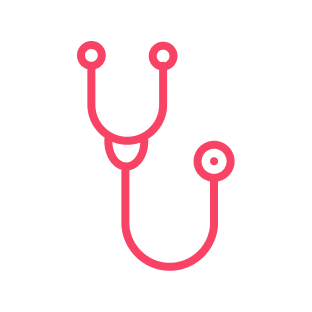Diet Plan
Home -Diet Plan
Gastric Trouble- Acidity Diet
Gastric trouble and acidity are often triggered by unhealthy eating habits and stress. Managing your diet can significantly reduce symptoms like heartburn and bloating. Include fiber-rich foods like oats, bananas, and green vegetables. Avoid spicy, fried, and acidic foods such as citrus fruits, tomatoes, and caffeine. Eat smaller, frequent meals and avoid late-night eating. Stay hydrated with water and herbal teas. Limit alcohol, smoking, and carbonated drinks. Chew food slowly and maintain a balanced diet to support digestion. Regular exercise and mindful eating habits can further aid in preventing acidity and promoting overall gut health.
Irritable Bowel Syndrome Diet
Managing Irritable Bowel Syndrome (IBS) involves a carefully tailored diet to reduce symptoms like bloating, cramps, and irregular bowel movements. A low-FODMAP diet—limiting fermentable carbs found in foods like onions, garlic, beans, and certain fruits—often helps. Include soluble fiber from oats, bananas, and carrots to ease digestion. Avoid trigger foods such as dairy, fried foods, caffeine, and artificial sweeteners. Eat smaller, regular meals and stay hydrated. Probiotics may support gut health, but consult a doctor before use. Keeping a food diary can help identify personal triggers, making it easier to maintain digestive comfort and control symptoms effectively.
Fatty Liver Disease Diet
A healthy diet plays a key role in managing Fatty Liver Disease. Focus on whole, nutrient-dense foods to reduce liver fat and inflammation. Choose high-fiber vegetables, fruits, whole grains, and lean proteins like fish, chicken, and legumes. Healthy fats from nuts, seeds, and olive oil are beneficial. Avoid sugary foods, refined carbs, processed snacks, and saturated fats found in fried or fatty meats. Limit alcohol entirely, as it worsens liver damage. Regular meals and weight management support liver health. Staying active and hydrating well enhances the effects of a liver-friendly diet and can even help reverse early-stage fatty liver.
Alcohol liver Disease Diet
For Alcoholic Liver Disease (ALD), diet and complete alcohol cessation are critical for recovery. Focus on nutrient-rich foods to support liver repair and prevent further damage. Eat plenty of fruits, vegetables, whole grains, and lean proteins like fish, poultry, and legumes. Include sources of antioxidants and B-complex vitamins, which are often depleted in ALD. Avoid high-fat, fried, and processed foods, as well as added sugars and salty snacks. Stay well-hydrated and limit caffeine. In severe cases, a doctor may recommend supplements. A balanced, liver-friendly diet combined with medical care can greatly improve liver function and overall health.
Weightloss Diet
A balanced weight loss diet focuses on nutrient-rich, low-calorie foods that support fat loss while preserving muscle. Prioritize vegetables, fruits, whole grains, lean proteins (like chicken, fish, tofu), and healthy fats from nuts and olive oil. Reduce intake of refined carbs, sugary snacks, processed foods, and sugary drinks. Control portion sizes and aim for smaller, frequent meals to maintain metabolism. Stay hydrated with water and herbal teas, and limit alcohol. Regular physical activity complements dietary efforts. Sustainable weight loss comes from consistency, not extreme restriction. A calorie deficit, mindful eating, and a healthy routine lead to long-term success.
Post Weightloss Procedure Diet
For Alcoholic Liver Disease (ALD), diet and complete alcohol cessation are critical for recovery. Focus on nutrient-rich foods to support liver repair and prevent further damage. Eat plenty of fruits, vegetables, whole grains, and lean proteins like fish, poultry, and legumes. Include sources of antioxidants and B-complex vitamins, which are often depleted in ALD. Avoid high-fat, fried, and processed foods, as well as added sugars and salty snacks. Stay well-hydrated and limit caffeine. In severe cases, a doctor may recommend supplements. A balanced, liver-friendly diet combined with medical care can greatly improve liver function and overall health.
Constipation / Piles Diet
A fiber-rich diet is essential for managing constipation and piles (hemorrhoids). Include whole grains, leafy greens, fruits like papaya, pears, and prunes, and vegetables such as carrots and broccoli. Drink plenty of water—at least 8–10 glasses daily—to soften stools and promote regular bowel movements. Avoid processed foods, red meat, fried items, and low-fiber snacks. Limit caffeine and alcohol, which can dehydrate the body. Regular meals and moderate physical activity help stimulate digestion. Warm water in the morning and natural laxatives like soaked raisins or flaxseeds may provide relief. Healthy, consistent eating habits are key to long-term digestive comfort.

